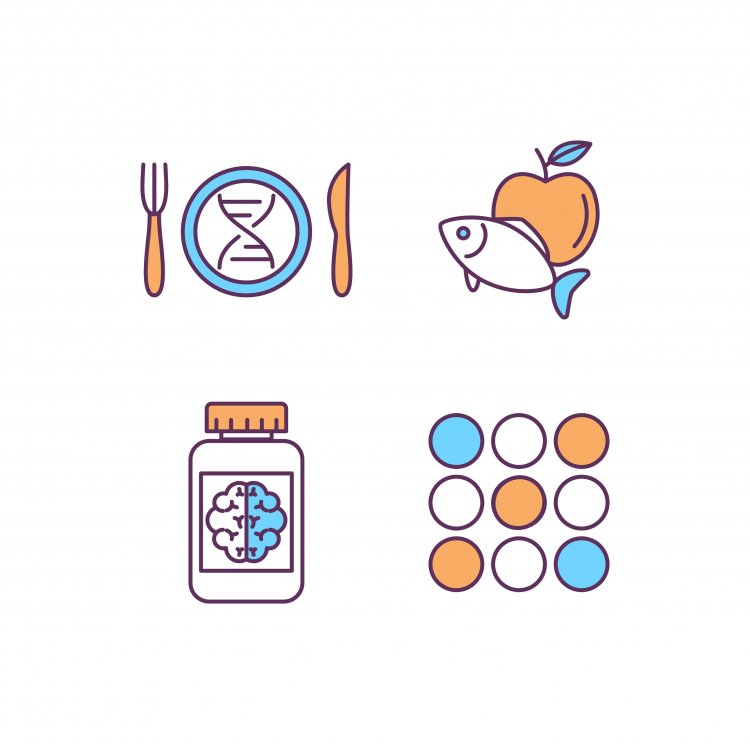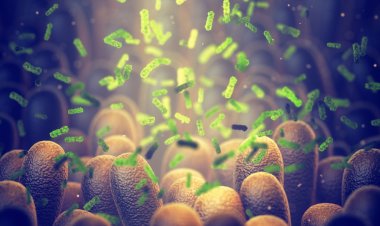Nutrigenomics: Its Innovations & Challenges
Ms Tina VI (Senior Dietitian, DM-WIMS) explains about Nutrigenomics: the relationship between genetics, nutrition, and health; its advantages-disadvantages, applications

During this era, outbreaks of various infections affect the entire world's health, wellbeing, and economy. According to my perception, the primary reason behind all these health issues is nutrition. The main villain for the entire human population is awful lifestyle habits and unhealthy eating patterns. So, one should healthily control their food intake with the proper understanding of the genetic influence on nutrition. The term Nutrigenomics will surely help us to understand the relationship between genetics, nutrition, and health.
A Greek dictum “What is food for one, is to others a bitter poison?” (Lucretius) is considered as one of the first written quotation which revealed a possible interaction between one’s diet and health. Nutritional genomics uses modernized genomics technology to examine the communication between genes, nutrition, and health. This term was first used in 2001. Although the genetic makeup of every humans are similar, there exist some differences in our genetic blueprints due to single nucleotide polymorphisms (SNPs) that make us unique from one another. These slight variations will determine the nutrient metabolism and its effect on our bodies. This area of science enable us to provide personalized diets tailored to the genetic makeup of an individual and thus holds the promise of improving health and preventing chronic diseases such as diabetes, obesity, cardiovascular diseases and cancer etc. Personalized nutrition associates the two-way relationship between nutrients and genes. Nutrigenomics harnesses different disciplines and review dietary effects on genome stability (DNA damage at the molecular and chromosomal levels), epigenome alterations (DNA methylation), RNA and micro-RNA expression (transcriptomics), protein expression (proteomics), and metabolite changes (metabolomics), all these can be studied independently or in an unified manner to investigate health status and/or disease curve.
This developing science reveals,
a) Effect of the dietary bioactive compounds on gene expression
b) The pathway of our genes act influenced by nutrient intake
c) How nutrients influence on genes to prevent and treat diseases
d) Molecular relationships between nutrients and gene responses
Development of nutrigenomics provides opportunities to understand toxicity/safety profiles of nutrients, prevention of diet related diseases, avoidance of junk food supplements, and savouring less healthy foods with no effects on health. It provides an evidence for nutrition based recommendations for individual genotype.
Many macronutrients (carbohydrates, proteins, fibres, and fatty acids), micronutrients (antioxidants, vitamins, and minerals), and bioactive phytochemicals (carotenoids, flavonoids, and anthocyanins) form an integral part of the daily dietary intake of people. These dietary constituents have been shown to affect gene expression leading to physiological and metabolic modulations. Nutrition experts suggested vegan meals to prevent Alzheimer’s disease, calcium- rich food to reduce belly fat, and indirectly obesity, lutein- and zeaxanthin-rich foods to prevent macular degeneration, fruit-vegetables, whole grains and nuts against heart diseases, and low omega-6 fatty acid to prevent colon cancer.
The effects of major diet constituents and nutrients
|
Nutrient Category |
Biological and Physiological Effects |
| Flavanones, dihydroflavonols, stilbenes |
Decrease the risk of diabetes in elderly persons |
| Polyphenols |
Reduce cardiovascular disease; Affect paraoxonase 1 (PON1) gene |
| Flavonol, flavone, flavanone | Lower depression risk |
| Flavonols, flavanones | Lower risk of ovarian cancer |
| Proanthocyanidins | Lower depression risk |
| Anthocyanins and berries | Reduce the risk of Parkinson disease |
| Soy proteins and soy Isoflavones | Reduce LDL cholesterol and apolipoprotein B Beneficial effect on bone health |
| Plant lignins (pinoresinol, lariciresinol, matairesinol, secoisolariciresinol) |
Reduce risk of breast cancer |
| n-3 PUFA (α-linolenic acid) | Positive effect against type-2 diabetes |
| n-6 PUFA (linoleic acid) | Positive effect against type-2 diabetes |
| n-3 PUFAs | Enhance transcription of IER5L, HES1, IL1RN, CCL18, IL1RN, IL7R, IL8, CCL3 genes |
| EPA and DHA |
Reduce blood pressure in adults with systolic hypertension |
| n-3 PUFAs |
No effect on interleukin-6 trans-signalling system |
| β-carotene |
Protects buccal cells from relative telomere lengths shortening |
| Vitamin A |
Low vitamin A intake increase risk for childhood asthma |
| Vitamin D | Decrease risk of tobacco-related cancers |
| α-tocopherol (vitamin E) | Reduce liver cancer risk Protects buccal cells from relative telomere lengths shortening |
The applications of nutrigenomics are uncovering novel nutrient-gene interactions, popularizing new diagnostic tests which aid to assess the unfavourable responses of genes to various diets, and distinguishing and managing populations with specific nutrient requirements. Finally, these will assist to revamp the human populace's health and wellbeing. In the future, nutrigenomics demands to accouche biomarkers for the well-being of society, liberate early biomarkers for disease predisposition, discover dietary responders from non-responders, and identify bioactive food components. In order to achieve the expected advantages of these bidirectional technologies, both the developing and developed countries should build up a strong network between them to share professional and high-tech expertise in nutrigenomics by the implementation and assimilation of new post-genomic technologies.
The Genomics studies extend specific biomarkers based on epigenetic modification or SNPs regulating gene expression which brings about genetic or metabolic disorders. These biomarkers can be potentially used for screening susceptible genes across the genome, which helps to plan the anticipatory actions before the severity of the abnormality. A biotech company, Nutrigenomix promoted by The University of Toronto, Canada has already initiated clinical trials based on biomarkers and is also providing dietary advice based on DNA analysis of an individual. Nutritional genomics is still developing and will lead us to take the foods which our DNA likes. It has immense potential to improve the fate of dietary guidelines. The prime challenge faced in the field of nutrigenomics is to anticipate general disorders decades before their indication. The basic reason involving gene-diet interactions for cardiovascular diseases and cancer are assuring but the majority are unresolved. The expansion of this field will demand the combination of diverse methods and researches on large population studies to investigate gene-environment interactions in a sufficient manner. Besides the current challenges, it is strongly evident that these technological advancements will make use of the information contained in our genomes to achieve healthy life by altering behavioural changes. Finally, from my point of view, to accomplish the benefits from these bidirectional technologies, knowledge procured from the area of nutrigenomics should be disseminated between both developing and undeveloped nations.


 Admin
Admin 

























